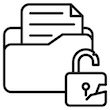
SGCafe
Breach Details
Description
We've been tracking a resurgence in older breach datasets appearing on various dark web forums, often repackaged as "new" leaks to lure in buyers. What caught our eye about the recent SGCafe database surfacing on a popular hacking forum wasn't its size – a mere 446 records – but its age. The breach dates back to November 1, 2016, yet it's being presented as a fresh compromise. This highlights a persistent risk: even seemingly insignificant breaches can resurface years later, potentially impacting individuals who may have forgotten about the associated accounts. The re-emergence of this data underscores the need for continuous monitoring and proactive security measures, even for older incidents.
The SGCafe Breach: A Small Leak with Lingering Impact
The SGCafe breach, initially occurring on November 1, 2016, involved a database compromise that exposed a small number of user records. The dataset recently reappeared on a well-known hacking forum, offered as a "new" leak. While the total record count is only 446, the breach is notable for its age and the potential for these credentials to be reused across other platforms. The absence of directly leaked data types (passwords, emails, etc.) doesn't negate the risk; even usernames can be valuable for credential stuffing attacks or targeted phishing campaigns. This incident serves as a reminder that even small, old breaches can contribute to larger security risks. Its resurgence is likely tied to threat actors seeking to profit from older datasets or using them as part of broader reconnaissance efforts.
Breach Stats
* Total records exposed: 446
* Types of data included: None (usernames assumed, but not explicitly stated)
* Sensitive content types: None specified
* Source structure: Database
* Leak location: Hacking forum
External Context & Supporting Evidence
While there's no readily available news coverage of the original SGCafe breach from 2016, the reappearance of older datasets aligns with a broader trend observed by cybersecurity researchers. Many threat actors specialize in compiling and reselling historical breach data, often leveraging its potential for credential stuffing or account takeover attacks. The value of such data lies not only in the exposed credentials themselves but also in the patterns and connections that can be extracted from them.
Leaked Data Types
None


/includes/qr-code.png)